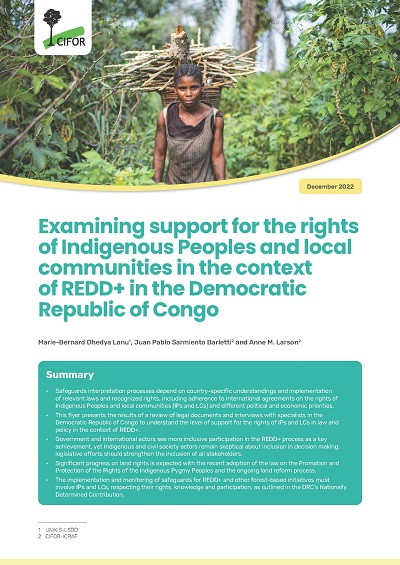Summary
- Safeguards interpretation processes depend on country-specific understandings and implementation of relevant laws and recognized rights, including adherence to international agreements on the rights of Indigenous Peoples and local communities (IPs and LCs) and different political and economic priorities.
- This flyer presents the results of a review of legal documents and interviews with specialists in the Democratic Republic of Congo to understand the level of support for the rights of IPs and LCs in law and policy in the context of REDD+.
- Government and international actors see more inclusive participation in the REDD+ process as a key achievement, yet Indigenous and civil society actors remain skeptical about inclusion in decision making; legislative efforts should strengthen the inclusion of all stakeholders.
- Significant progress on land rights is expected with the recent adoption of the law on the Promotion and Protection of the Rights of the Indigenous Pygmy Peoples and the ongoing land reform process.
- The implementation and monitoring of safeguards for REDD+ and other forest-based initiatives must involve IPs and LCs, respecting their rights, knowledge and participation, as outlined in the DRC’s Nationally Determined Contribution.
Download:
Année de publication
2022
Auteurs
Dhedya Lonu, M-B.; Sarmiento Barletti, J.P.; Larson, A.M.
Langue
English
Mots clés
indigenous people, local community, sustainable development, development policy, community forestry
Géographique
Democratic Republic of the Congo



















